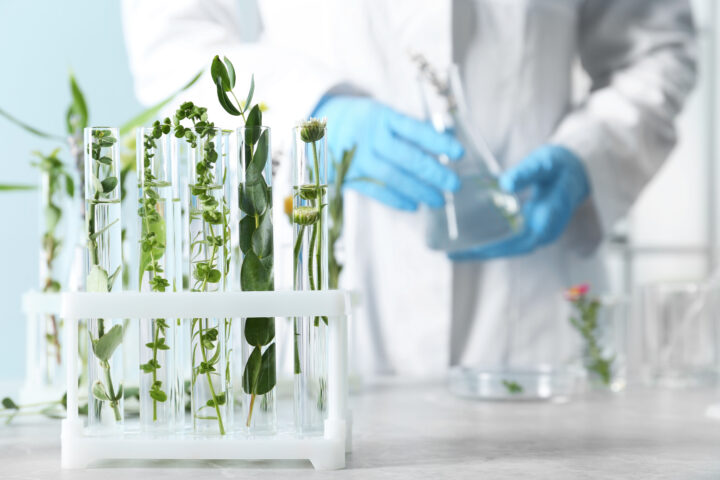
Drought-tolerant wheat from Argentina
Heat waves are posing a major challenge to cultivation around the world. Water shortages and droughts are resulting in heavy crop losses for the agricultural industry. Because droughts will be more frequent in the future, the search for plant varieties that consume less water is a top priority. One drought-tolerant wheat variety from Argentina is showing great potential.
Tuesday, August 2, 2022
Europe is currently suffering from severe heat and drought. Some areas have seen no rain for weeks or even months. The south of the continent has been particularly affected. In Italy, where the river Po has all but dried up due to drought, five regions have declared a state of emergency through the end of the year. And water is also scarce in Portugal, Spain, and southern France. Water scarcity is a particular threat to agricultural. Droughts cause large-scale destruction of crops, jeopardizing food security in many countries. Breeding plant varieties that require less water is therefore an important goal for both European and global agricultural industries.
Gene involved in drought stress response identified
There is some good news from Argentina, however, where the company Bioceres is working on developing a drought-resistant variety of wheat. Several years ago, researchers at the company identified the regulatory gene HB4 in sunflowers, which—in addition to its many other functions—controls and coordinates the plant’s drought stress response. Field trials involving soybean plants that had the HB4 sunflower gene introduced showed that the plants produced around ten percent higher yields during drought than conventional varieties. The transgenic soybean plant has been approved for cultivation in Argentina since 2015.
Twenty percent higher yields during drought
Genetically modified soybeans are grown in approximately three-quarters of the world’s soybean producing areas, and they play a vital role in animal feed production and trade. Wheat is considerably more important when it comes to crops for human consumption. Yet genetically modified varieties of wheat for human consumption have so far largely failed to catch on. This could change with the drought-resistant wheat variety from Bioceres. In field trials, the company’s HB4 wheat produced 20 percent higher yields during drought than conventional varieties. It has been approved for cultivation in Argentina since 2021.
Acceptance in importing countries crucial
Importing countries will need to be receptive to the wheat before large-scale cultivation can begin. Since 2021, a number of important agricultural countries such as Brazil, Colombia, New Zealand, Australia and, not least, the USA have authorized the import of HB4 wheat for animal and human consumption, and 53,000 hectares of HB4 wheat were already being cultivated in Argentina by 2021–22. As this example shows, openness to new varieties and technologies is crucial for securing the future of agriculture in the face of climate change.
Related articles

Green biotech: safety concerns no longer hold water
At the end of October, swiss-food.ch hosted a film screening and panel discussion in Zurich on the subject of genome editing entitled “Between Protest and Potential”. The well-attended event dealt with the emotional debates in recent decades surrounding genetic engineering. The event showed that the situation has changed fundamentally.

With false narratives against genetic engineering
To denigrate green genetic engineering, narratives that do not stand up to scrutiny keep popping up in the public debate. The aim in each case is political. Recently, the false claims are intended to prevent the regulation of new breeding methods such as Crispr Cas from being technology-friendly.

Popular Apple Varieties in Danger
The science magazine "Einstein" of Swiss Television has addressed the new breeding methods. The report clearly shows that there is no way around these new methods if Switzerland wants to continue cultivating popular apple varieties such as Gala, Braeburn, and Golden Delicious.

Genome editing: Organic farming shuts itself off from progress
In future, the EU wants to treat genome-edited plants in the same way as conventionally bred ones. As the "NZZ am Sonntag" writes, this is like a small revolution. Until now, the commercial use of gene scissors has been impossible due to an extremely restrictive genetic engineering law.

